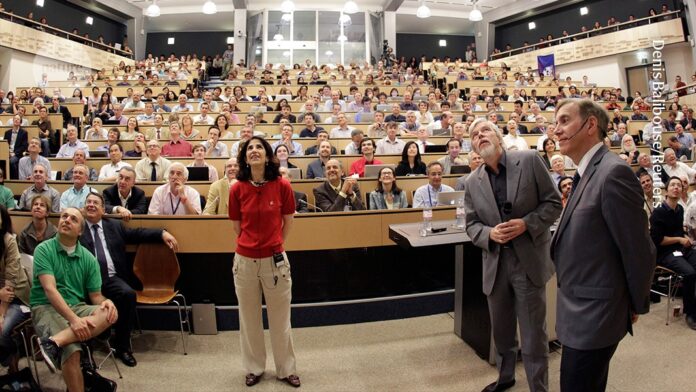## Beyond the Higgs: What’s Next for CERN and the Future of Science The Large Hadron Collider (LHC) at CERN delivered a monumental breakthrough with the discovery of the Higgs boson, a finding that shook the foundations of physics. But the quest for understanding the universe doesn’t end there. Nature.com recently outlined the crucial decisions facing CERN as it embarks on its next chapter, a chapter that promises to rewrite our understanding of reality and deepen international scientific collaboration. Buckle up, because the future of science hangs in the balance, and it all starts with the decisions made at CERN.
The Cost of Ambition: Funding Concerns and Technological Hurdles
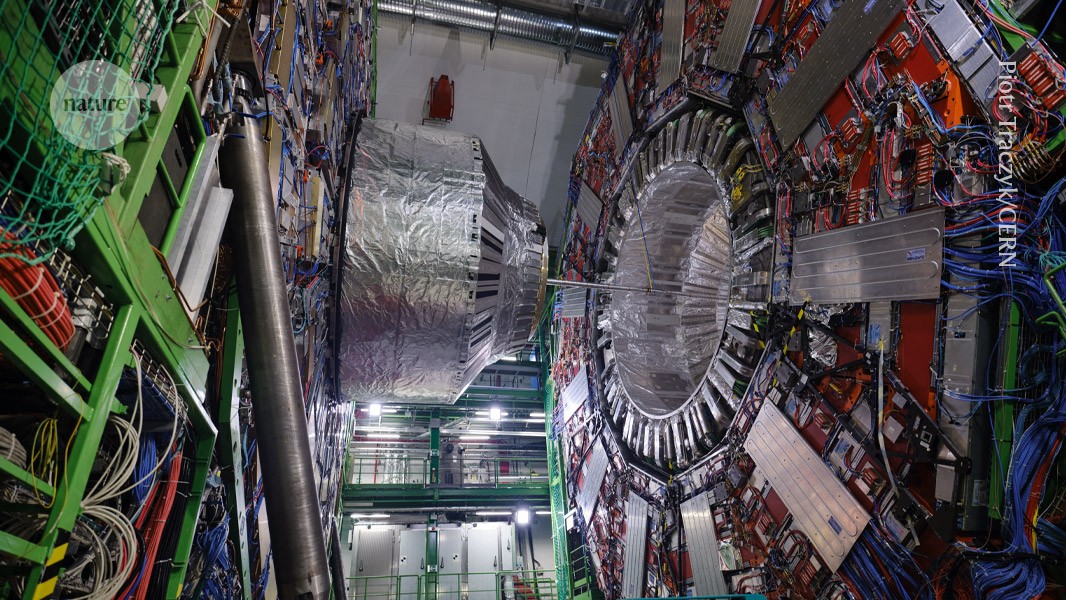
The Future Circular Collider (FCC) project is not without its challenges. One of the most significant concerns is the cost of the project, estimated to be at least $30 billion. This is a significant investment, and many are questioning whether it is worth the cost.
Another challenge is the technological hurdles that need to be overcome. The FCC requires superconducting magnets strong enough to bend high-energy particle beams around the accelerator’s tunnel, which does not yet exist. This means that the project will need to invest heavily in research and development to make this technology a reality.
Critics are also concerned about the cost of the project and whether it is justified. With a price tag of $30 billion, it is one of the most expensive scientific projects ever undertaken. Some are questioning whether the cost is worth the potential benefits, and whether the money could be better spent on other scientific projects.
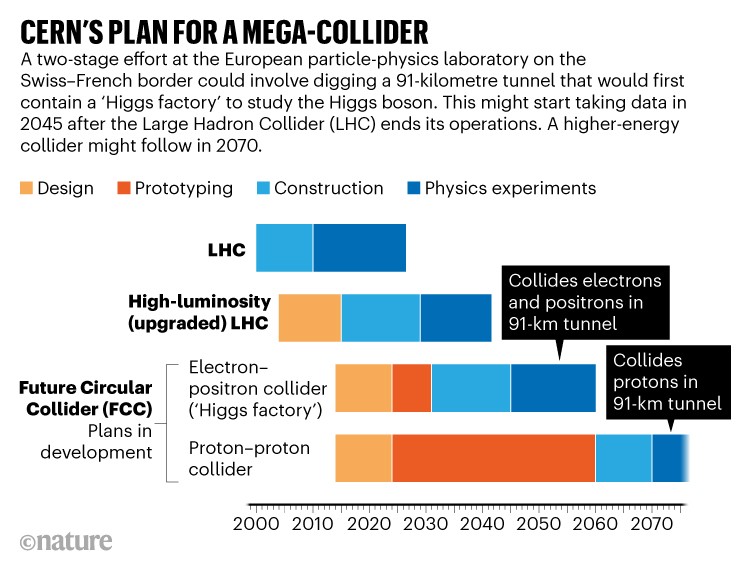
Alternative Plans and Criticisms: Linear Colliders and Reusing the LHC Tunnel
Not everyone is convinced that the FCC is the best way forward. Alternative plans, such as linear colliders and reusing the existing LHC tunnel, are being proposed. These alternatives are seen as more cost-effective and potentially more efficient.
Linear colliders, for example, are seen as a more straightforward way of achieving high-energy collisions. They do not require the construction of a massive circular tunnel, which would reduce the cost and complexity of the project.
Reusing the existing LHC tunnel is another option that is being considered. This would allow for the existing infrastructure to be repurposed, reducing the need for new construction and the associated costs.
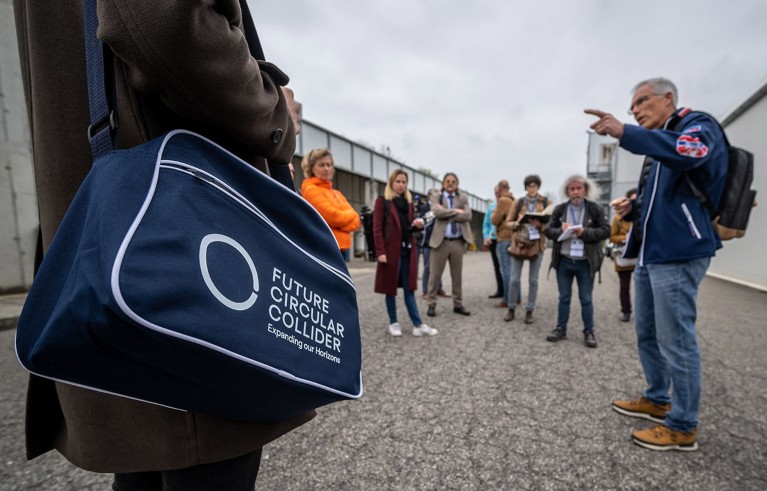
The Perception of Entitlement: CERN’s Dominance in Particle Physics Funding
CERN has long been the dominant player in particle physics funding, and some are questioning whether this is justified. Critics argue that CERN’s dominance is unfair and that other areas of science are being neglected as a result.
Others argue that CERN’s dominance is necessary to push the boundaries of human knowledge. They argue that the benefits of the FCC project, such as the potential discovery of new particles and forces, outweigh the costs.
The debate is complex and multifaceted, with valid arguments on both sides. Ultimately, the decision on whether to proceed with the FCC project will depend on a careful weighing of the costs and benefits.
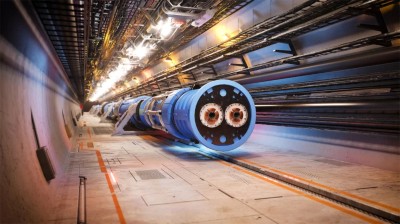
The Implications of CERN’s Decision
A Long-Term Ambition: The FCC’s Potential to Shape High-Energy Physics for the Rest of the Century
The FCC has the potential to shape high-energy physics for the rest of the century. If successful, it could lead to a new era of discovery and push the boundaries of human knowledge.
The project is seen as a long-term ambition, with the potential to reap benefits for generations to come. Some argue that the project is worth the investment, even if it takes 50 years to come to fruition.
Others are more skeptical, arguing that the project is too ambitious and that the benefits are uncertain. They argue that the money could be better spent on more immediate and tangible projects.
International Cooperation and the Future of Science: The Stakes of CERN’s Decision
The FCC project is not just a European project, but an international collaboration. The stakes are high, with the potential to shape the future of science and international cooperation.
The project has the potential to bring together scientists and engineers from around the world, promoting collaboration and cooperation. It could also lead to new discoveries and breakthroughs, pushing the boundaries of human knowledge.
However, the project is not without its risks. If it fails, it could damage international cooperation and set back the progress of science.
The Impact on Young Researchers: Will the FCC be a Legacy Project?
The FCC project is seen as a legacy project, with the potential to shape the careers of young researchers. However, some are concerned that the project is too long-term and that the benefits will not be seen until long after they have retired.
Others argue that the project is precisely what makes it worthwhile. They argue that the project will provide a sense of purpose and direction for young researchers, even if the benefits are not seen until later in their careers.
The debate is complex and multifaceted, with valid arguments on both sides. Ultimately, the decision on whether to proceed with the FCC project will depend on a careful weighing of the costs and benefits.
The Road Ahead
The Strategy Update: Soliciting Input from the Physics Community
CERN is currently soliciting input from the physics community as part of its strategy update. This involves gathering proposals and ideas from researchers around the world, which will inform the decision-making process.
The town-hall meeting in Venice, Italy, in June will provide an opportunity for researchers to discuss and debate the ideas. The strategy group will then submit its recommendations to the CERN Council in December.
The debate is already vigorous, with many researchers expressing their opinions and concerns. The decision on whether to proceed with the FCC project will depend on a careful consideration of the costs and benefits.
The Town-Hall Meeting and the CERN Council’s Decision-Making Process
The town-hall meeting in Venice, Italy, in June will be a crucial step in the decision-making process. Researchers from around the world will gather to discuss and debate the ideas and proposals.
The CERN Council will then consider the recommendations and make a decision on whether to proceed with the FCC project. The decision will depend on a careful weighing of the costs and benefits, as well as the input from the physics community.
The stakes are high, with the potential to shape the future of science and international cooperation. The decision will be closely watched by the scientific community and beyond.
The Future of Particle Physics: Will the FCC Get the Green Light?
The future of particle physics hangs in the balance, as the CERN Council considers whether to proceed with the FCC project. The decision will depend on a careful consideration of the costs and benefits, as well as the input from the physics community.
If approved, the FCC project has the potential to shape the future of particle physics and push the boundaries of human knowledge. However, if rejected, it could damage international cooperation and set back the progress of science.
The decision is complex and multifaceted, with valid arguments on both sides. Ultimately, the future of particle physics will depend on a careful weighing of the costs and benefits.
Conclusion
The Future of Science and Diplomacy Hangs in the Balance at CERN
As we reflect on the critical role CERN plays in advancing scientific knowledge and fostering international cooperation, it’s clear that the decisions made at this iconic research facility have far-reaching implications for the global community. The article highlights the crucial importance of CERN’s next moves, emphasizing the need for sustained investment in particle physics research, collaboration with other nations, and a continued commitment to open science. By exploring the complex interplay between science, politics, and diplomacy, CERN’s endeavors demonstrate that the pursuit of knowledge can indeed be a powerful catalyst for global understanding and cooperation.
As we look ahead to the future, it’s imperative that CERN’s leadership prioritizes continued innovation, international collaboration, and transparency. The next generation of scientists and researchers will rely on the discoveries made at CERN to tackle some of the most pressing challenges facing our world, from the search for new sources of clean energy to a deeper understanding of the mysteries of the universe. By embracing a spirit of global cooperation and open science, CERN can continue to serve as a beacon of hope and progress, inspiring a new wave of scientists, policymakers, and citizens to work together towards a brighter future.

